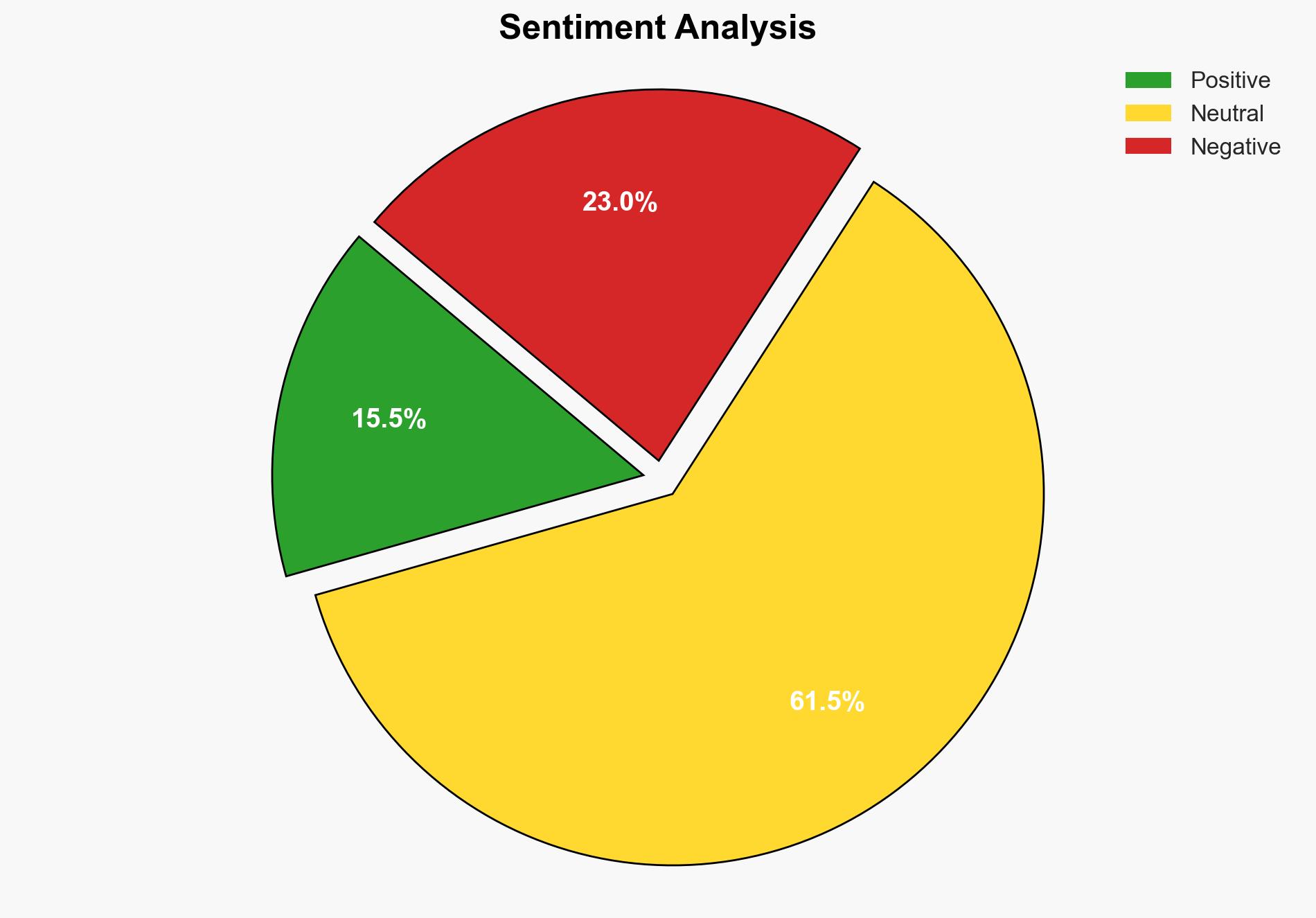Trump Admin Bypasses Congress to Send Israel 4B as It Blocks Aid Into Gaza – Truthout
Published on: 2025-03-04
Intelligence Report: Trump Admin Bypasses Congress to Send Israel 4B as It Blocks Aid Into Gaza – Truthout
1. BLUF (Bottom Line Up Front)
The Trump administration has bypassed Congress to expedite a $4 billion military assistance package to Israel while simultaneously supporting a blockade on Gaza. This action has sparked accusations of human rights violations and potential war crimes. The decision has significant implications for regional stability and U.S. foreign policy, particularly in the context of ongoing tensions in the Middle East and the administration’s stance on Ukraine.
2. Detailed Analysis
The following structured analytic techniques have been applied for this analysis:
SWOT Analysis
Strengths: Strengthening U.S.-Israel relations; reinforcing U.S. commitment to Israel’s security.
Weaknesses: Potential alienation of allies; increased criticism from human rights organizations.
Opportunities: Enhanced military cooperation with Israel; potential leverage in Middle Eastern geopolitics.
Threats: Escalation of conflict in Gaza; deterioration of U.S. relations with Palestinian authorities and neighboring countries.
Cross-Impact Matrix
The decision to support Israel’s military while blocking aid to Gaza may exacerbate tensions in the region, influencing neighboring countries’ policies and potentially destabilizing existing ceasefire agreements.
Scenario Generation
Best-Case Scenario: The military aid strengthens Israel’s defense capabilities without further escalating the conflict in Gaza, leading to renewed peace talks.
Worst-Case Scenario: The blockade leads to a humanitarian crisis in Gaza, prompting international intervention and further destabilizing the region.
Most Likely Scenario: Continued tensions with periodic escalations in violence, impacting regional stability and U.S. diplomatic efforts.
3. Implications and Strategic Risks
The decision to bypass Congress for military aid to Israel poses risks to U.S. national security interests by potentially escalating conflict in the Middle East. It may also undermine U.S. credibility in international human rights advocacy and strain relations with European allies. The blockade on Gaza could lead to a humanitarian crisis, increasing global criticism and pressure on the U.S. to alter its foreign policy approach.
4. Recommendations and Outlook
Recommendations:
- Engage in diplomatic efforts to mediate between Israel and Palestinian authorities to ease tensions and promote a sustainable ceasefire.
- Consider regulatory measures to ensure Congressional oversight in future military aid decisions.
- Enhance humanitarian aid efforts to Gaza to mitigate the impact of the blockade and improve U.S. standing in international human rights forums.
Outlook:
Best-Case: Diplomatic efforts lead to a de-escalation of tensions and a resumption of peace talks.
Worst-Case: Continued blockade results in a humanitarian crisis, international condemnation, and increased regional instability.
Most Likely: Ongoing tensions with intermittent violence, requiring sustained diplomatic and humanitarian engagement.
5. Key Individuals and Entities
The report mentions significant individuals including Marco Rubio and Donald Trump. Key entities involved are the U.S. administration, the Israeli government, and human rights organizations such as Médecins Sans Frontières and the UN Relief and Works Agency for Palestine Refugees.





